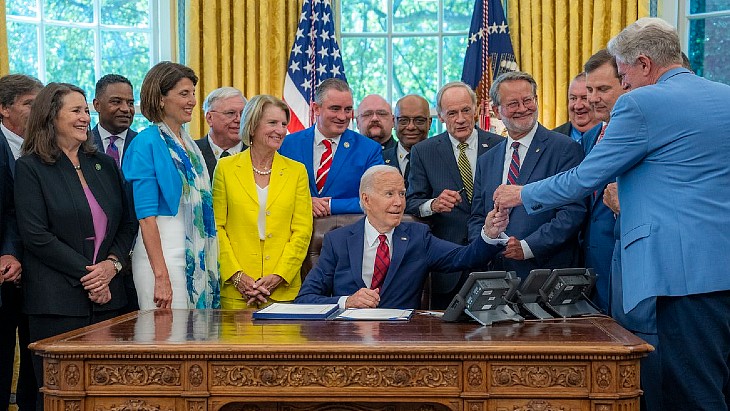IAEA assesses long-term safety at Forsmark
.jpg)
Units 1 and 2 at Forsmark entered commercial operation in 1980 and 1981 and entered long-term operation (LTO) in 2020 and 2021, respectively. Vattenfall AB, the operator, has decided to run each boiling water reactor until 2040 and 2041. Although Swedish reactor operating licences are not time limited, consent to operate is subject to a periodic safety review submitted to the Swedish Radiation Safety Authority (SSM) every 10 years. A third unit at Forsmark began operating in 1985.
A SALTO peer review is a comprehensive safety review addressing strategy and key elements for the safe long-term operation of nuclear power plants. SALTO missions complement IAEA Operational Safety Review Team (OSART) missions which are designed as a review of programmes and activities essential to operational safety. SALTO peer reviews can be carried out at any time during the lifetime of a nuclear power plant, although according to the IAEA the most suitable time lies within the last ten years of the plant's originally foreseen operating period. SALTO and OSART reviews are carried out at the request of the IAEA member country in which the review is to take place.
The latest SALTO mission to Forsmark, requested by SSM, continues a comprehensive, multi-year evaluation of the two units. In 2016, SSM invited an IAEA pre-SALTO mission to review the long-term safety of the two units, followed by another pre-SALTO mission in 2019 and a follow-up mission in 2021.
During a mission carried out 7-16 November, the team reviewed the plant's preparedness, organisation and programmes for safe LTO of the two units. The mission was conducted by a ten-person team comprising experts from Argentina, Canada, Germany, France, the Netherlands and Switzerland, as well as two observers from Armenia and the UK and two IAEA staff members.
The team identified good practices and good performances that will be shared with the nuclear industry globally, including: the plant developed and implemented a detailed process for the identification of components not directly important to safety that may influence intended functions of safety components; the plant developed and implemented a comprehensive obsolescence management programme; and the plant developed a programme to coordinate specialist activities to foster the growth of a specialised workforce in specific areas, such as ageing management.
"The team observed that the operator is implementing measures for safe LTO in a timely manner and the staff at the plant are professional, open and receptive to suggestions for improvement," said team leader and IAEA Nuclear Safety Officer Martin Marchena, adding that "most of the ageing management and LTO activities are already in alignment with IAEA safety standards. We encourage the plant to address the review findings and implement all remaining activities for safe LTO as planned."
The team also provided recommendations to further enhance the preparations for LTO safety: the plant should address some of the remaining elements in plant programmes to ensure effectiveness in ageing management; the plant should improve the grouping of components for implementation of ageing management activities (so called commodity groups); and the plant should improve ageing management programmes for civil structures, systems and components for LTO.
The team provided a draft report to the plant management and to SSM at the end of the mission, who will have an opportunity to make factual comments on the draft. A final report will be submitted to the plant management, SSM and the Swedish government within three months.
"The review has assured us that we are on the right track for safe and reliable operation in the long-term perspective," said Johan Börjesson, Deputy Managing Director at Forsmark NPP. "The results of the mission will help us to further develop and improve our abilities that will ensure safe and long operation at Forsmark. I would also like to thank the IAEA for their knowledge and efforts in order to help us improve."



_49215.jpg)





_66488.jpg)


